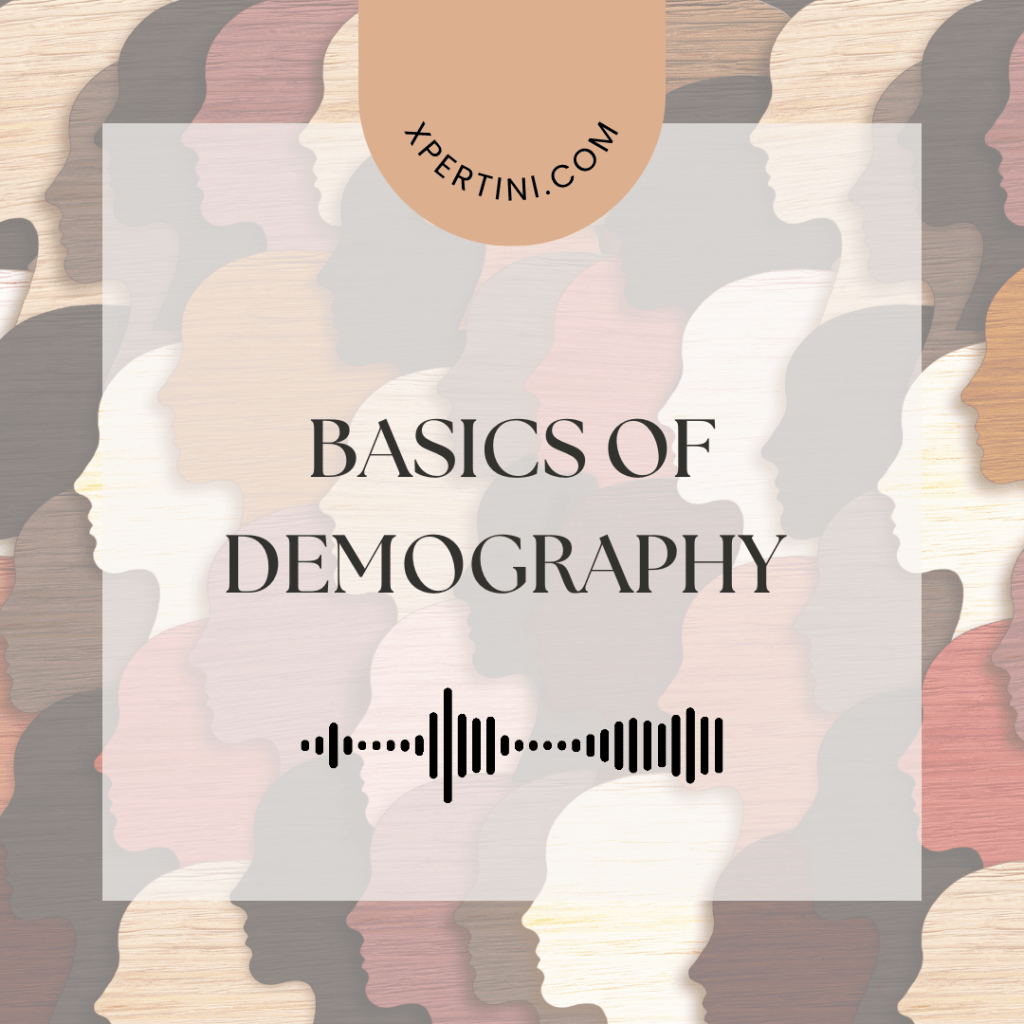Basics of Demography
Course Summary
This comprehensive demography course provides a thorough exploration of population dynamics, offering valuable insights for those aspiring to embark on a career in demography or enhance their existing knowledge. The course begins by laying the foundation with an overview of demography, elucidating its significance in influencing societal trends, resource allocation, and policy-making. Participants gain a clear understanding of basic demographic terms and definitions, setting the stage for a nuanced exploration of the field.
Moving through the historical perspective, the course delves into the evolution of demography as a scholarly discipline, highlighting the profound influence of historical events on shaping population dynamics. This historical lens enriches students’ grasp of contemporary demographic trends, providing a holistic perspective.
The exploration of major demographic theories offers a critical analysis and comparison, empowering learners to navigate diverse perspectives in the field. Demographic data collection follows, emphasizing the importance of robust methods, sources, and ethical considerations. Students acquire practical skills in collecting and analyzing demographic data, ensuring accuracy and reliability in their assessments.
The course delves into the Demographic Transition Model, revealing the stages and implications of demographic shifts. Real-world case studies illustrate these transitions, providing tangible examples for deeper understanding. Population pyramids are then introduced, fostering interpretation skills and showcasing their application in varied contexts.
The pivotal link between demography and public policy is explored, emphasizing the profound impact demographic factors wield in shaping governance decisions. Learners gain insights into policy strategies for addressing societal challenges influenced by demographic trends. The global perspective section illuminates regional variations in population dynamics and elucidates global demographic trends, ensuring a comprehensive understanding of the interconnected nature of demographic shifts.
The course further examines the intersection of demography and social issues, providing a critical analysis of how demographic changes contribute to societal challenges. It equips participants with an understanding of policy strategies tailored to address these challenges, fostering a holistic approach.
Finally, the course outlines diverse career paths in demography, detailing the requisite skill sets and qualifications for a successful professional journey. Participants gain a strategic overview, empowering them to make informed decisions regarding their career trajectories. This course, characterized by its depth, relevance, and practical applicability, ensures that learners are well-equipped to navigate the complex terrain of demography and contribute meaningfully to societal understanding and policy-making.
Course Overview
This course provides a comprehensive understanding of demography, focusing on population dynamics and their implications. Demography is a vital field within sociology, influencing policy-making, resource allocation, and societal trends. Whether you’re considering a career in demography or simply want to enhance your knowledge, this course equips you with essential skills to analyze and interpret population data.
Course Objectives
Understand the fundamental concepts and theories of demography.
Analyze and interpret demographic data to draw meaningful conclusions.
Explore the historical evolution of demography and its impact on societies.
Gain insights into the factors influencing population growth and decline.
Examine the demographic transition model and its relevance in different contexts.
Learn to assess the implications of demographic trends on public policy.
Develop practical skills in demographic research and data analysis.
Explore the relationship between demography and social issues.
Understand the role of demography in global and regional contexts.
Identify potential career opportunities in the field of demography.
Course Outcomes
Define key demographic terms and concepts.
Analyze demographic trends using appropriate research methods.
Interpret population pyramids and demographic transition models.
Evaluate the impact of historical events on population dynamics.
Apply demographic principles to assess societal challenges.
Demonstrate proficiency in demographic data analysis.
Critically assess the role of demography in public policy.
Explore global variations in population patterns.
Analyze the relationship between demography and social issues.
Identify and evaluate career opportunities in demography.
Course Audience
Aspiring demographers seeking a foundational understanding.
Social science students interested in population studies.
Policy makers and analysts dealing with population-related issues.
Researchers and analysts in public health and social sciences.

